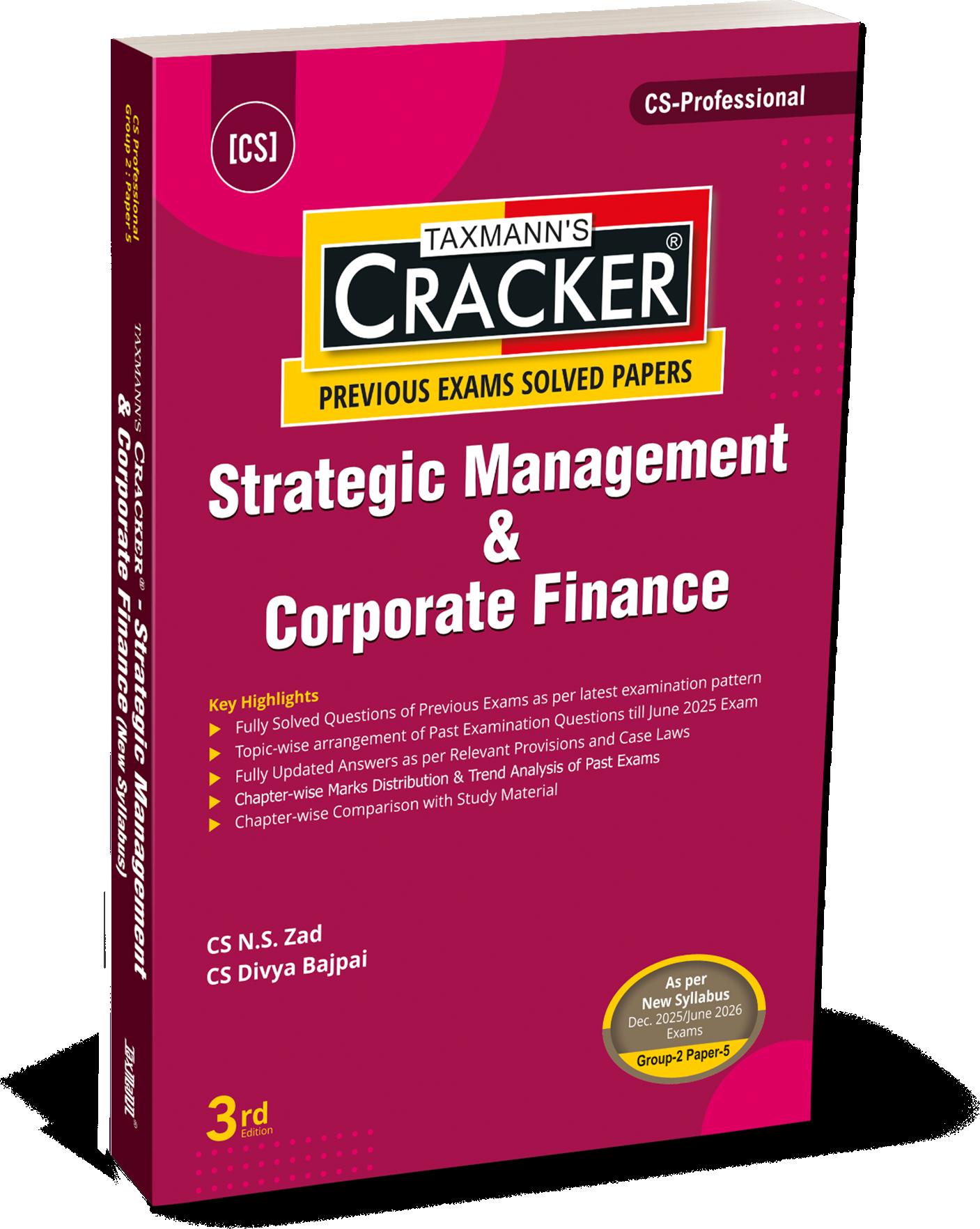RAISING OF FUNDS FROM DEBT & PROCEDURAL ASPECTS
UNIT I INDIAN FUND BASED
Q1. Write a short note on: Trading of government securities Or
Write a short note on: Negotiated Dealing System
Ans.:Negotiated Dealing System (NDS): Negotiated Dealing System is an electronic platform for facilitating dealing in Government Securities and Money Market Instruments. NDS facilitates electronic submission of bids/application by members for primary issuance of Government Securities by RBI through auction and floatation. It will provide an interface to the Securities Settlement System. Trading of Government Securities: Government securities are traded on Stock exchanges through Negotiated Dealing System using members of BSE/NSE and these trades are required to be reported to the exchange. The bulk of the corporate bonds, being privately placed, were, however, not listed on the stock exchanges and the trend is changing now. Most of the debt securities which are privately placed are now listed either on both the exchanges or on one of the exchange. Two Depositories, NSDL and CDSL maintain records of holding of securities in a dematerialized form. Records of holding of Government securities for wholesale dealers like Banks/Primary Dealers and other financial institutions are maintained by the RBI.
Q2. Discuss briefly road map for listing of debt securities by newly incorporated entity.
Ans.: The major change brought out in the NCS Regulations is that even a newly incorporated entity, other than REIT/InvIT, is allowed to raised funds through the issuance of corporate bonds and tap the listed space of bond market provided it fulfills the following conditions:
Issuance of debt securities is made only on a private placement basis. Such issuance is made on the Electronic Book Provider (EBP) platform irrespective of the issue size.
Such issue may be subscribed by only Qualified Institutional Buyers.
PART II : CORPORATE FINANCE
Earlier, one had to be in existence for a period of at least 3 years to tap the bond market. This will enable Special Purpose Vehicles created for specific infrastructure purposes/NBFCs/listed REITs/listed InvITs and other companies who propose to list debt securities purely on private placement basis but who do not have a three-year existence history, to list their debt securities issued on private placement basis, while, all other requirements under the NCS Regulations and operating stipulations of the EBP mechanism shall continue to apply to such issuers.
Q3. Distinguish between: Market Linked Debentures (MLD) and NonConvertible Debentures (NCD)
Ans.: Non-Convertible Debentures (NCD) is basically fixed-income security where the issuer assures to pay a fixed interest rate on the principal amount to the investor.
NCD can’t be converted into equity shares of the issuing company, as the name suggests, “non-convertible”. It has a specified maturity period, after which the investor can redeem the principal amount and the accumulated interest.
On the contrary, Market Linked Debentures are structured products linked to the performance of the market index or asset, like commodities, currencies and stocks. MLDs return on investments is not fixed because it is linked to the underlying asset’s performance. So, the returns on MLDs are higher than NCDs when the market performs well but can be negative or zero when the market isn’t performing well.
Q4. Write a short note on: Types of Debentures
Or
Distinguish between: Naked Debentures & Secured Debentures [Dec. 2009 (3 Marks)]
Or
Distinguish between: Perpetual Debentures & Bearer Debentures [Dec. 2009 (3 Marks)]
Or
Explain the term ‘Naked Debentures’. [June 2012 (2 Marks)]
Ans.: Various types of debentures are as follows:
(1) Naked or Unsecured Debentures: Debentures of this kind do not carry any charge on the assets of the company. The holders of such debentures do not therefore have the right to attach particular property by way of security as to repayment of principal or interest and thus called as naked or unsecured debentures.
(2) Secured Debentures: Debentures that are secured by a charge of the whole or part of the assets of the company are called mortgage debentures
or secured debentures. After creating charge on debentures, a charge is required to be registered with ROC within 30 days of creation.
(3) Redeemable Debentures: Debentures that are redeemable on expiry of certain period are called redeemable debentures.
(4) Perpetual/irredeemable Debentures: If the debentures are issued subject to redemption on the happening of specified events which may not happen for an indefinite period, e.g. winding-up, they are called perpetual/ irredeemable debentures.
(5) Bearer Debentures: Such debentures are payable to bearer and are transferable by mere delivery. The name of the debenture holder is not registered in the books of the company, but the holder is entitled to claim interest and principal as and when due. A bona fide transferee for value is not affected by the defect in the title of the transferor.
(6) Registered Debentures: Such debentures are payable to the registered holders whose name appears on the debenture certificate and is registered on the companies register of debenture holders maintained as per Section 88 of the Companies Act, 2013.
Q5. Distinguish between: Perpetual Debentures & Bearer Debentures [June 2011 (2 Marks)]
Ans.: Perpetual Debentures: If the debentures are issued subject to redemption on the happening of specified events which may not happen for an indefinite period, e.g. winding-up, they are called perpetual debentures.
Bearer Debentures: Such debentures are payable to bearer and are transferable by mere delivery. The name of the debenture holder is not registered in the books of the company, but the holder is entitled to claim interest and principal as and when due. A bona fide transferee for value is not affected by the defect in the title of the transferor.
Q6. Write a short note on: Debt Securities [June 2011 (4 Marks)]
Ans.: Debt security represents borrowed funds that must be repaid. In other words, debt securities are interest-paying Bonds, Notes, Bills, or Money Market Instruments that are issued by governments or corporations.
Some debt securities pay a fixed rate of interest over a fixed time period in exchange for the use of the principal. In that case, that principal, or par value, is repaid at maturity.
Some are pass-through securities, with principal and interest repaid over the term of the loan. Still other issues are sold at discount, with interest included in the amount paid at maturity.
Example of debt securities includes:
Debentures
Bonds
Notes
Certificates of Deposit (CD)
Commercial Paper (CP)
Treasury bills
Mortgage-backed bonds
Q7. Explain the financial instrument: Naked debenture [June 2012 (2 Marks)]
Ans.: Naked or Unsecured Debentures: Debentures of this kind do not carry any charge on the assets of the company. The holders of such debentures do not therefore have the right to attach particular property by way of security as to repayment of principal or interest and thus called as naked or unsecured debentures.
Q8. Distinguish between: Fully Convertible Debentures & Partly Convertible Debentures [June 2015 (3 Marks)]
Ans.: Following are the main points of distinctions between fully and partly convertible debentures:
PointsPartly Convertible Debentures Fully Convertible Debentures
Meaning When only part of debenture is converted into equity shares they are known as partly convertible debentures.
Suitability
Capital base
Better suited for companies with established track record.
Relatively lower equity capital on conversion of debentures.
When full value of debenture is converted into equity shares they are known as fully convertible debentures.
Better suited for companies without established track record
Higher equity capital on conversion of debentures.
Flexibility in financing Favourable debt equity ratio. Highly favourable debt equity ratio.
Classification for debt-equity ratio
Convertible portion classified as ‘equity’ and non-convertible portion as ‘debt’.
Classified as equity for debt-equity computation.
PopularityNot so popular with investors. Highly popular with investors.
Servicing of equity
Relatively lesser burden of equity servicing. Higher burden of servicing of equity.
Q9. A public company may issue secured irredeemable debentures. Comment. [Dec. 2018 (5 Marks)]
Ans.: Perpetual/irredeemable Debentures: If the debentures are issued subject to redemption on the happening of specified events which may not happen for an indefinite period, e.g. winding-up, they are called perpetual/irredeemable debentures.
As per Rule 18(1)(a) of the Companies (Share Capital & Debentures) Rules, 2014, an issue of secured debentures may be made, provided the date of its redemption shall not exceed 10 years from the date of issue.
However, following classes of companies may issue secured debentures for a period exceeding 10 years but not exceeding 30 years:
(
i) Companies engaged in setting up of infrastructure projects.
(ii) Infrastructure Finance Companies.
(iii) Infrastructure Debt Fund Non-Banking Financial companies.
(iv) Companies permitted by a Ministry or Department of the Central Government or by RBI or by the NHB or by any other statutory authority to issue debentures for a period exceeding 10 years.
Thus, after the commencement of the Companies Act, 2013, no company either public or private can issue perpetual or irredeemable debentures.
Q10. Write short notes on: Optionally Fully Convertible Debenture [Dec. 2019 (3 Marks)]
Ans.: The Optionally Fully Convertible Debenture is a kind of debenture which can be converted into shares at the expiry of a certain period at a predetermined price, if the debt holder (investor) wishes to do so. The “securities” as defined under section 2(81)) of the Companies Act, 2013 means securities as defined in section 2(f) of the Securities Contracts (Regulation) Act, 1956, and includes hybrids.
Hence, after analysing the above definitions of “OFCD”, “hybrid” and “securities” it could be rightly concluded that an OFCD being a hybrid security falls under the definition of “securities” as defined under section 2(h) of Securities Contract (Regulation) Act, 1956 and under section 2(81) of the Companies Act, 2013 as it inherits the characteristics of debentures initially and also that of the shares at a later stage if the option to convert the securities into shares being exercised by the security holder.
Q11. What are the various risks associated with Bond Investment? Explain.
Ans.: Risk is an inherent part of investing. Generally, investors must take greater risks to achieve greater returns. The main risks of investing in bonds include:
(a) Interest Rate Risk: Rising interest rates are a key risk for bond investors. Generally, rising interest rates will result in falling bond prices, reflecting the ability of investors to obtain an attractive rate of interest on their money elsewhere.
(b) Credit Risk: This is the risk that an issuer will be unable to make interest or principal payments when they are due, and therefore default.
(
c) Inflation Risk: Inflation reduces the purchasing power of a bond’s future coupons and principal. As bonds tend not to offer extraordinarily high returns, they are particularly vulnerable when inflation rises.
(
d) Reinvestment Risk: When interest rates are declining, investors may have to reinvest their coupon income and their principal at maturity at lower prevailing rates.
(
e) Liquidity Risk: This is the risk that investor may have difficulty in finding a buyer when they want to sell and may be forced to sell at a significant discount to market value.
Q12. What do you understand by “Online Bond Platform Provider”?
Ans.: SEBI on November 14, 2022, notified the circular, Registration and regulatory framework for Online Bond Platform Providers (OBPP) for regulating online bond trading platforms.
Online Bond Platform Provider (OBPP): Online Bond Platform Provider means any person operating or providing an online bond platform and “online bond platform” means any electronic system, other than a recognized stock exchange or an electronic book provider platform, on which the debt securities which are listed or proposed to be listed, are offered and transacted.
Framework for Online Bond Platform Provider: A framework has been prescribed for entities operating/desirous of operating as OBPPs under Regulation 51A of the SEBI (Issue & Listing of Non-Convertible Securities) Regulations, 2021 [NCS Regulations]:
(
a) Such entity shall be a company incorporated in India and register itself as a stock broker in the debt segment of the Stock Exchange.
(
b) An entity acting as an OBPP on or prior to this provision coming into force, shall cease to offer products or services or securities on its OBP other than the following:
- Listed debt securities.
- Debt securities proposed to be listed through a public offering. Such OBPP shall divest itself of offerings of other products or services or securities.
Q13. What are the requirements while making application by any entity desirous of operating an Online Bond Platform as per SEBI Circular notified for registration and regulatory framework for Online Bond Platform Providers?
Ans.: SEBI on November 14, 2022, notified the circular, ‘Registration and regulatory framework for Online Bond Platform Providers (‘OBPP’) for regulating online bond trading platforms. Vide this circular it has been prescribed that any entity operating or desirous of operating an Online Bond Platform (OBP) (‘entity’) shall, after obtaining registration as a stock broker in the debt segment of Stock Exchange, apply to a recognized stock exchange to act as an Online
Bond Platform Provider (OBPP) as specified under NCS Regulations. In its application, the entity shall ensure that the following requirements are met and confirmations/undertakings are provided:
The entity has appointed a Company Secretary as a compliance officer. The entity has appointed at least two qualified key managerial personnel with experience of at least 3 years in the securities market.
The entity has obtained SEBI Complaints Redress System (SCORES) authentication and has put in place a well-defined mechanism to address grievances that may arise or likely arise while carrying out OBP operations.
The entity owns, operates and maintains robust technology infrastructure with a high degree of reliability, availability, scalability and security in respect of its systems, data and network, appropriate to support its operations and manage the associated risks.
The entity shall ensure compliance with the minimum disclosure requirements as specified by SEBI.
The entity undertakes to ensure that its advertisements shall be in conformity with the Advertisement Code.
The entity undertakes to take steps for redress of grievances of the investors within 30 days from the date of the receipt of the complaint, and disclose the number, nature and other particulars of the complaints received, if any, in such form as specified by the Stock Exchange.
Entity has a comprehensive risk management framework covering all aspects of its operations and shall ensure that risks associated with its operations are identified properly and managed prudently.
The entity undertakes to establish appropriate safeguards and procedures to deal with exigencies like suspension or cessation of trading in debt securities, cancellation of orders or transactions by the investors and sellers, malfunctions or erroneous use of its systems by investors and sellers, or other unforeseen situations.
The entity undertakes to identify and disclose on its OBP, all instances of conflict of interest, if any, arising from its transactions or dealings with related parties.
The entity undertakes to maintain all data relating to its activities in an easily retrievable media and confidentiality and security of all data relating to its activities and strictly control access to such data.
The entity shall, in addition to the information required to be submitted under various SEBI regulations, submit such information as may be required by the Stock Exchange in relation to their operations.
Q14. Write a short note on: Benefits of EBP Mechanism
Ans.: Benefits of EBP Mechanism: Electronic Book Provider Mechanism offers a lot of benefits to various stakeholders, including the following:
PART II : CORPORATE FINANCE
Transparent process for price discovery through anonymous bidding.
Dissemination of bidding data on anonymous basis to the market which is absent till now.
Facility to do multiple bidding at different yields.
Institutional investors can also participate on behalf of arrangers/ sub-arrangers.
Allotment data to be made available on the website of the EBP website which would bring required transparency in the secondary market of such private placements.
EBP has helped in developing an institutional market for corporate bonds wherein all QIBs (i.e. which are institutional investors) can participate after one-time registration, therefore gives an equal access to participation on all issuances to all such institutional participants. Further, details of proposed issuances (by any issuer) is disclosed before the start of bidding, in order to enable them to enable participants to choose their investments options in advance. Further, bidding and allotment is done in a transparent manner and appropriate disclosures viz. market price, amount etc. are available to all investors after successful closure of the bid. This has resulted in not only reduction in cost but also timelines for both investors and issuers.
Q15. Write short note on: Request for Quote (RFQ) Platform
Ans.: Request for Quote (RFQ) is an electronic platform to enable sophisticated, multi-lateral negotiations to take place on a centralized online trading platform with straight through processing of clearing and settlement to complete a trade.
Request for Quote (RFQ) is a platform for interaction amongst the market participants who wish to negotiate transactions amongst themselves.
This platform is a participant-to-participant model where an initiator may request other participants for a quote in corporate bonds, securitized debt instruments, municipal debt securities, Government securities, State development loans, Treasury bills, Commercial papers and Certificates of deposit or any other security as specified by Exchange from time to time.
This platform effectively automates or provides an electronic form of transacting in OTC deals.
The RFQ platform shall provide users a range of options to seek a quote and to respond to a quote, while keeping an audit trail of all the interactions i.e. quoted yield, mutually agreed price, deal terms etc. This may bring pre-trade transparency for over-the-counter transactions in eligible securities.
Q16. In February 2020, pursuant to approvals from SEBI, both NSE and BSE launched Request for Quote (RFQ) Platform. In this connection, you are required to explain the following:
(i) Basic features of the RFQ Platform
(ii) Securities eligible for being traded on the RFQ Platform
(iii) Mandatory trades on RFQ Platform
(iv) Permitting Stock Brokers on RFQ Platform
Ans.: In February 2020, pursuant to approvals from SEBI, both National Stock Exchange of India Limited and BSE Limited launched RFQ platforms, as an extension of their existing trade execution and settlement platforms, to bring in transparency in “Over the Counter” deals which were negotiated bilaterally. RFQ platform has been developed by BSE and NSE which acts as a single interface for price givers as well as price takers in the corporate bond market from a diverse range of clients which will act as a catalyst to better price discovery. RFQ using request for quote protocol shall provide participants a range of options to seek a quote and to respond to a quote, while keeping an audit trail of all interactions i.e. quoted yield, mutually agreed price, deal terms etc. A participant may request other participants for a quote for eligible securities. Ever since its introduction, it has seen traction from market players.
(i) Basic features of the RFQ platform:
- RFQ Platform is a system or interface for inviting and giving quotes on an electronic platform.
- A participant who seeks quotes is termed as an Initiator and a participant who acts/responds to the quote requests of the Initiator is termed as a Responder.
- A participant may request other participants for a quote for eligible securities.
- The Initiator has the option to place quotes by disclosing its name or anonymously.
- The quote can be placed to an identified counterparty (i.e. ‘One to One’ (OTO) mode) or to all the participants (i.e. ‘One to Many’ (OTM) mode).
- The platform provides the participants a range of options to seek a quote and to respond to a quote, while keeping an audit trail of all interactions i.e. quoted yield, mutually agreed price, deal terms etc.
- The quotes will be bilaterally negotiated between the counterparties, based on specified parameters. The acceptance of a quote by a participant will be considered as mutual agreement between the parties for the given deal.
(ii) Securities eligible for being traded on the RFQ platform
Non-convertible securities
Securitized Debt Instruments
Municipal Debt Securities
Commercial Paper
Certificate of Deposit
Government Securities
State development Loans
Treasury Bills
Any other instrument, as may be specified by Stock Exchanges in consultation with SEBI.
(iii) Mandatory trades on RFQ platform: In February 2020, the RFQ platform was introduced as a ‘participant-based’ model wherein all regulated entities, listed body corporates, institutional investors and all India financial institutions were eligible to register, access and transact. To enhance liquidity on the RFQ platforms of the stock exchanges, SEBI has, inter alia, mandated registered Mutual Funds, AIFs and Portfolio Management Services, to undertake a specified percentage of their total secondary market trades in Corporate Bonds through RFQ platform of stock exchanges. IRDAI has also prescribed similar stipulations for Insurers.
(iv) Permitting Stock Brokers on RFQ platform: SEBI has allowed stock brokers registered under the debt segment of the Stock Exchange to place/seek bids on the RFQ platform on behalf of clients, in addition to the existing option of placing bids in a proprietary capacity.
The RFQ model will provide market participants with better price discovery and make information available near real-time to all the participants. This is expected to lead to more transparency, centralization and pooling of investor interest and hopefully, a more efficient and liquid market.
Q17. Write short note on: Characteristics of Bond [Dec. 2021 (3 Marks)]
Ans.: Characteristics of Bond are given below:
Bond has fixed face value, which is the amount to be returned to the investor upon maturity.
Fixed maturity date, which can range from a few days to 20-30 years or even more.
All bonds repay the principal amount after the maturity date. Provides regular payment of interest, semi-annually or annually.
Interest is calculated as a certain percentage of the face value known as a ‘coupon payment’.
Generally considered as less risky investment as compared to equity. It helps to diversify and grow investor’s money.
Q18. Discuss the measures taken by Government and Regulators to develop a vibrant Corporate Bond Market in India. [Dec. 2019 (5 Marks)]










